From customer spending to working from home, small businesses told us about the trends and topics that they’re keeping an eye on in these uncertain times.
Most people are concerned about the cost of living crisis and that includes the UK’s unsung heroes – small businesses.
As Vodafone launches its offer of 12 months’ free broadband for small firms, a roundtable of entrepreneurs exchanged views about the crisis and other issues they’re concerned about.
Cost-of-living knock-on effects
Spiralling energy prices are not only increasing the cost of doing business, they’re potentially reducing demand for many of the goods and services small businesses sell, said Sarah Jordan from Y.O.U. Underwear and John Pritchard from PALA, producers of ethically made undies and sunglasses respectively.
Ben Shimson, co-founder of research firm Britainthinks, warned that many of the UK’s small business will inevitably have to pass on those increased costs to their consumers in the form of higher prices.
“They have to have quite tricky conversations with customers and they’re often not massively prepared to have those conversations,” he said.
Mr Pritchard’s approach is to focus on selling to customers more able and willing to spend a bit more, such as corporate customers looking for branded items.
Technology
Ms Jordan highlighted how dependent her company’s new shop in Oxford is on broadband, as Y.O.U. Underwear initially traded solely online.
“It was surprising how much our physical shop runs on our broadband. Basically, everything – till, music, everything – is kind of connected to that,” she said.
Adam Cozens, managing director of independent coffee roasters Perky Blenders, concurred and emphasised the importance for any business of having back-up systems – especially for card-only businesses taking contactless payments.
“Reliability is what we really need. We’re so vulnerable when it comes to the connectivity, when it comes to the stability of those [payment] systems. Have a back-up!”
As for how to choose from the many competing systems available, Mr Cozens’ advice was simple: “Word of mouth and experience – someone in the small business community will have tried one and know.”
Vodafone to offer free broadband for a year to help small businesses mitigate rising costs and stay connected
New offer could save small businesses up to £348 on their broadband costs for a year.
Working from home
While the firms at the roundtable all varied in how they approach remote working, from the number of employees who work from home to the tools they used to manage it, there was a consensus that in-person workplaces still have a role to play.
Ruby Raut, CEO of period clothing purveyors Wuka, said: “I think it literally takes three months for somebody to actually understand how the business runs. For the first three months, I prefer people to spend four days a week in the office, so they can get an idea of the work pace, how people think – so people understand each other – and where we are as a small business.
“But after that, three days from home – once you get to know your team.”
Lizzie Carter, founder of Only Curls, works from home herself and so does everyone else at the fully-remote haircare company. She was enthusiastic about their experience: “We hired people remotely during the pandemic and we’ve created this quite tight-knit team.”
Even so, she acknowledges that there are downsides: “With the younger team members, training people remotely is quite hard. Had they been in an office with other team members around them, I think their growth would’ve been faster.”
Working from home: You've been doing it wrong all this time
While many workers now enjoy WFH flexibility, it’s still important to manage your time, wellbeing and productivity better so as to avoid burnout.
For Ms Raut, her lack of prior management experience affected her experience: “I find it very tricky as someone who never managed people before. Most [small business] founders have never done this and have to learn how to build a culture.”
Interesting times
The costs of advertising and finding new customers weighed on the minds of many of the business owners. For Ms Carter, supplementing the reach provided by social media and search engines is a priority: “We find our customers through Facebook, TikTok, Google and those costs are just going to be getting more and more expensive. So, we’re constantly talking about ways that we can find new customers, talking about things like ‘refer a friend’.
“Getting your customers to talk about the brand is one thing that we’re trying to do more of.”
Ultimately, for many of the entrepreneurs at the roundtable, their overriding concern was the air of general uncertainty around the country.
“The unpredictability at the moment is insane!” said Ms Carter. “We’re actually still not selling to Europe – losing 30% of our business overnight, we’ve not got that back yet.
“I’m kind of living in the moment now with the business, because it’s impossible to plan.”
Vodafone is doing what it can to help, offering small businesses free broadband for a year (on a two-year plan), as well as a £200 gift card for utility bills.
Vodafone also has its V-Hub website which gives small businesses advice on everything from marketing to cybersecurity, while its business.connected initiative aims to upskill 800,000 small businesses in the next three years.
Stay up-to-date with the very latest news from Vodafone by following us on Twitter and signing up for News Centre website notifications.
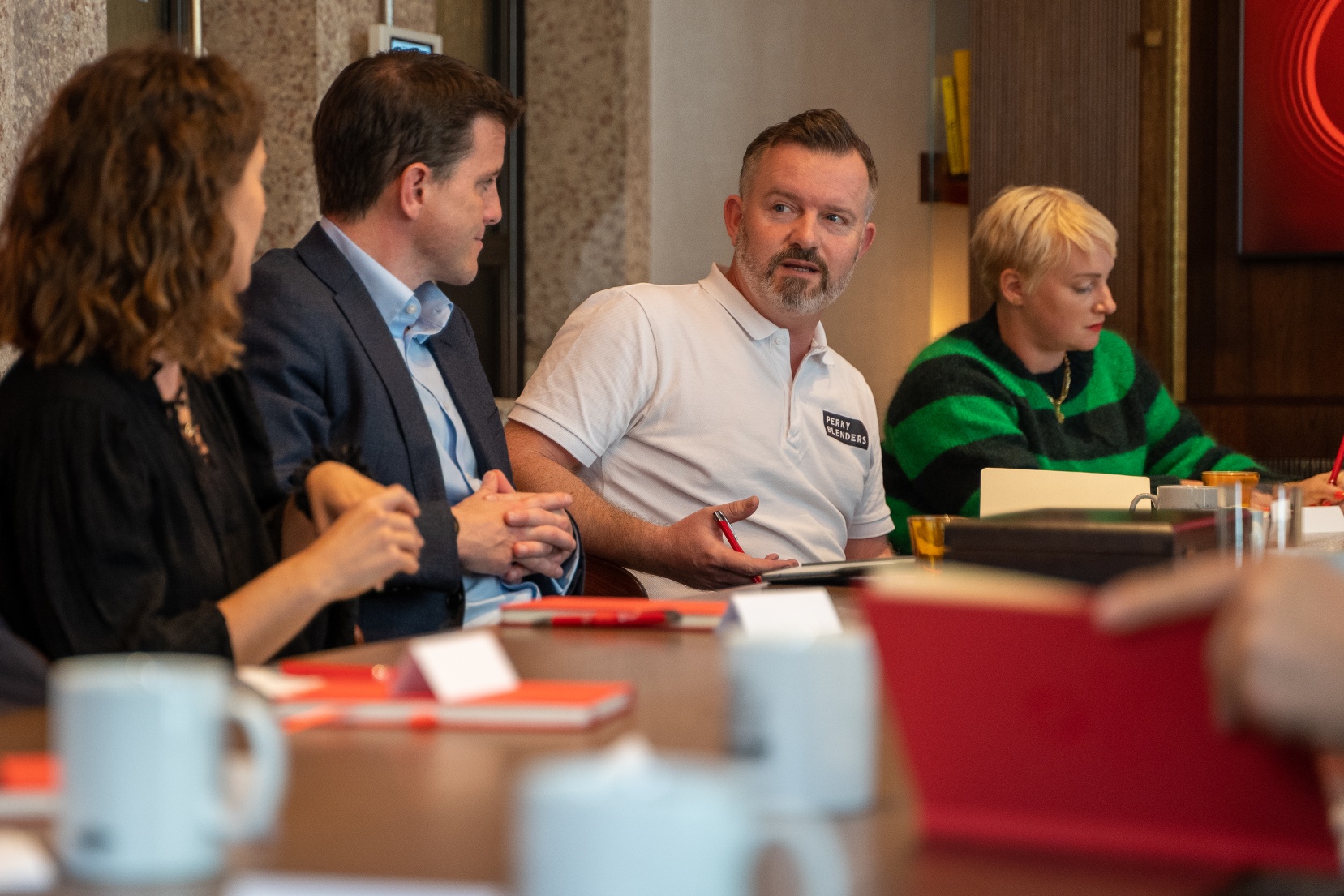


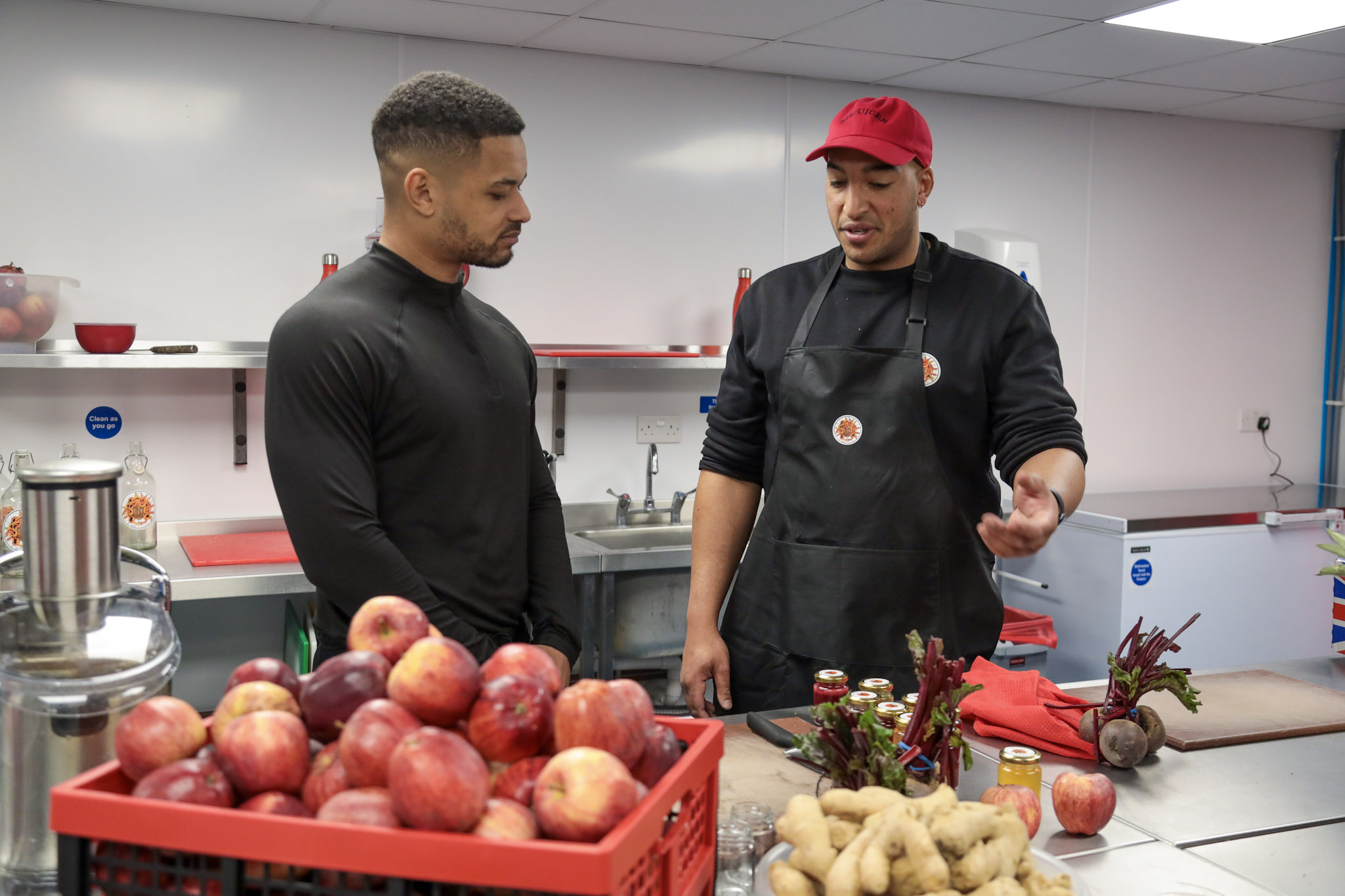

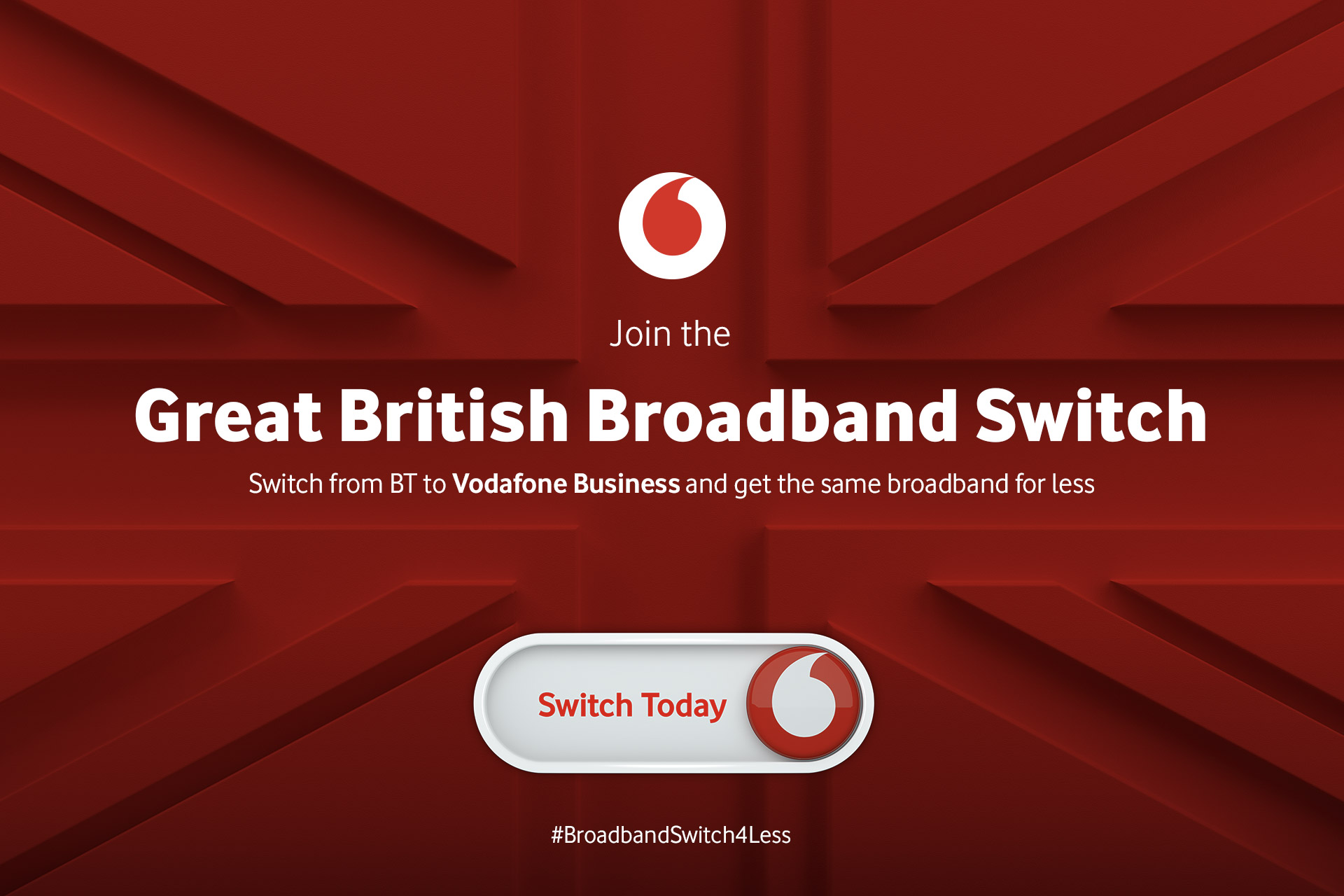
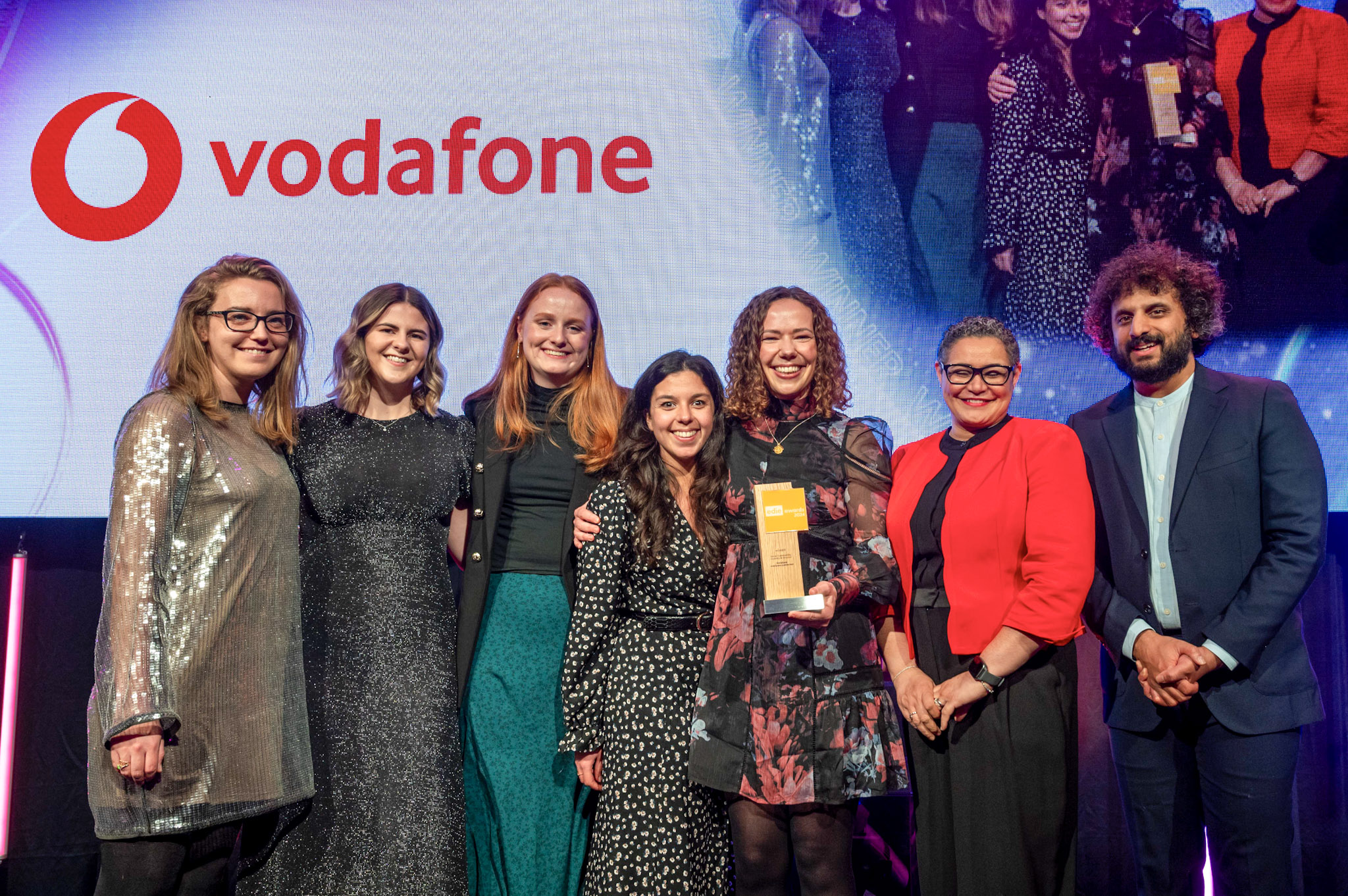
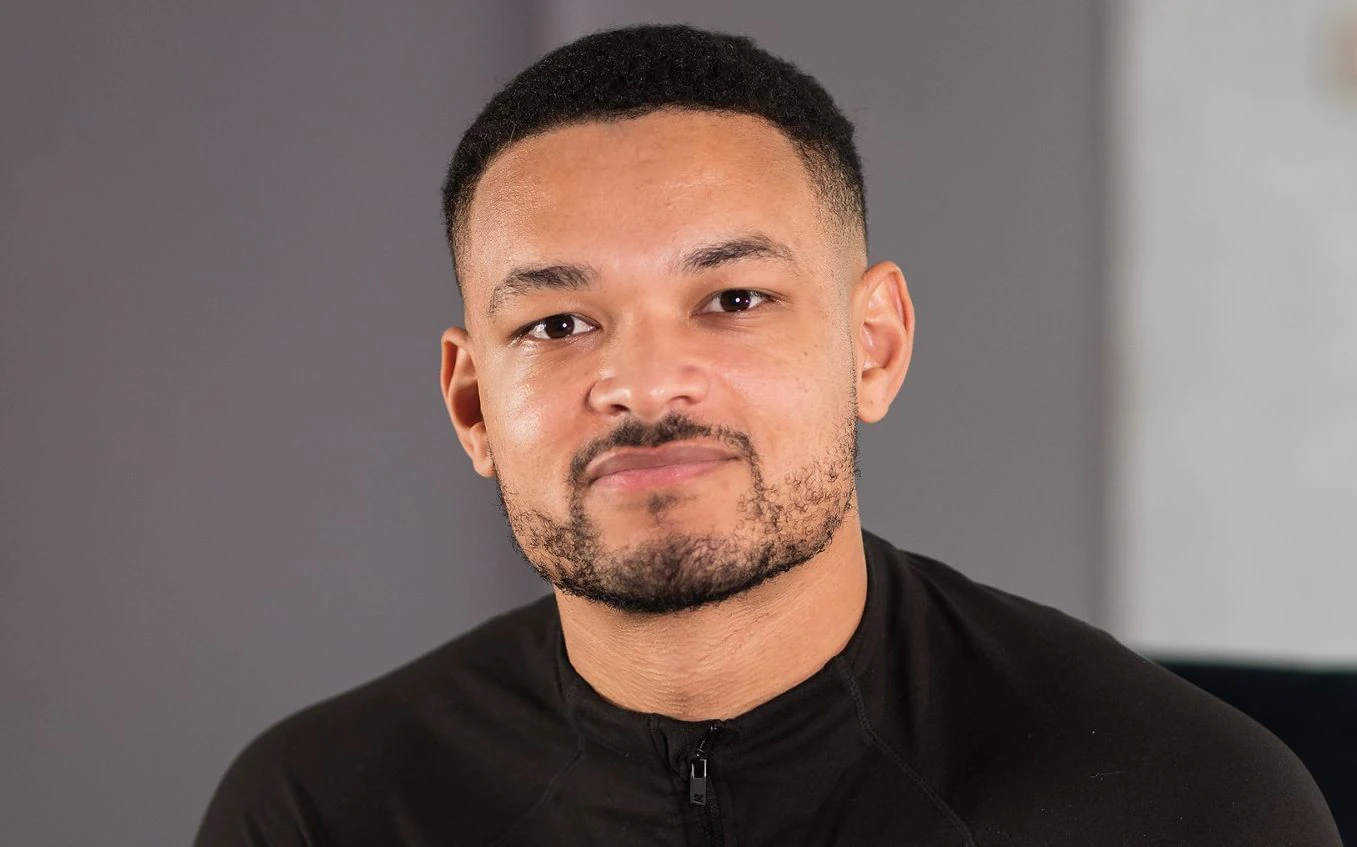
![Senior male retail shop owner using a tablet [Adobe Stock] stock image of an older male retail store owner standing in front of a chiller cabinet while using a tablet](https://www.vodafone.co.uk/newscentre/app/uploads/2024/02/Senior-male-retail-shop-owner-using-a-tablet-Adobe-Stock.jpg)

